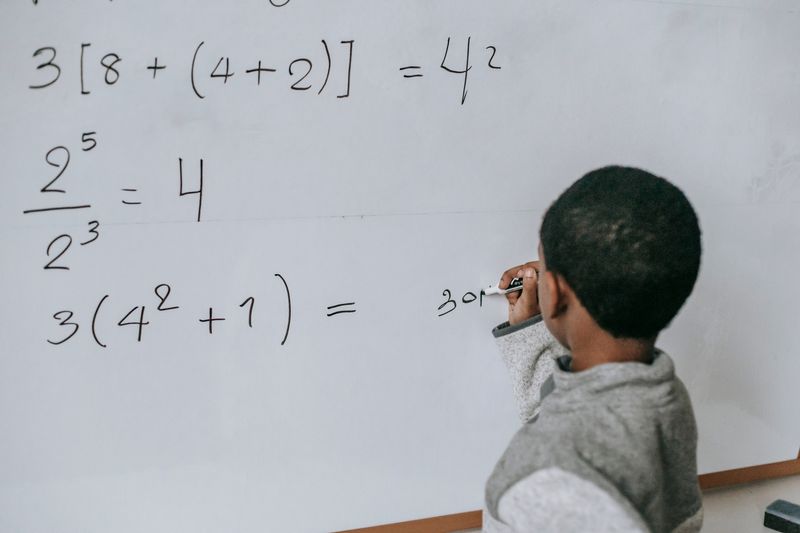Primary Sats results 2023: No rise towards pre-Covid levels
Fewer Year 6 pupils reached the expected standard in reading this year, following controversy over a paper that left pupils ‘broken’
The recently released primary Sats results for 2023 have shown that there has been no recovery towards pre-Covid levels of academic performance. The proportion of Key Stage 2 (KS2) pupils reaching the expected standard in all three areas of reading, writing, and maths remained unchanged from the previous year, with 59% of Year 6 pupils meeting the expected standard in all three areas, matching the “disappointing” results of 2022.
According to the data, there was a decrease in the proportion of pupils reaching the expected standard in reading attainment from 75% in 2022 to 73% in 2023. The proportion of pupils meeting the expected standard in writing increased by two percentage points from 2022 (69%) to 71%, but still fell short of the 2019 figure of 78%. In the area of maths, the proportion of pupils reaching the expected standard rose to 73%, compared to 71% in 2022.
Huge fall in KS2 reading pass marks
One of the contributing factors to the decrease in reading attainment was the controversy surrounding the reading paper. The Department for Education (DfE) published the thresholds for reaching the expected standard for KS2 reading, maths, and grammar, punctuation, and spelling (GPS) tests, revealing a significant drop in the reading pass marks. The threshold for reading fell from 29 out of 50 in 2022 to 24 in 2023.
This drop in pass marks came after months of concern expressed by school leaders who warned that the reading paper had a detrimental impact on pupils, leaving even the most able students “broken” and in tears. Despite these concerns, schools minister Nick Gibb had been informed that the reading paper was not more difficult than previous years’ assessments.
School leaders frustrated with delayed results
In addition to the controversy surrounding the exams themselves, school leaders faced frustrations with accessing the Sats results. Many reported difficulties in accessing the Primary Assessment Gateway (PAG) system, which they use to access the results. This issue occurred despite assurances from the Standards and Testing Agency (STA) that there would be no repeat of the problems experienced in the previous year.
Philosophical Discussion: Assessing the Impact of Covid-19 on Education
The lack of improvement in primary Sats results and the controversies surrounding the exams highlight the ongoing impact of the Covid-19 pandemic on education. The disruption caused by school closures and remote learning has undoubtedly affected students’ academic progress and their ability to meet expected standards. The challenges faced during the pandemic, including the implementation of remote learning, the mental health impact on students, and the logistical difficulties for schools, have all had significant consequences on education systems globally.
Furthermore, the controversy surrounding the difficulty of the reading paper raises questions about the effectiveness and fairness of standardized assessments. The intense pressure placed on students to perform well in high-stakes exams, coupled with the potential for exams to create undue stress and anxiety, has long been a subject of debate within the education community. The current situation raises questions about the validity and reliability of exam results and the impact they have on students’ well-being.
Editorial: Addressing Challenges and Supporting Schools
The primary Sats results for 2023 underscore the urgent need to address the challenges faced by the education system and support schools in their efforts to improve outcomes for students. While the government has made investments in programs such as the National Tutoring Programme and initiatives to improve literacy and numeracy skills, these efforts may not be sufficient in light of the persistent difficulties schools are facing.
Firstly, it is crucial to acknowledge the impact of the pandemic on students’ learning and well-being and provide targeted support to help them catch up. This support should include additional funding for resources, staffing, and interventions to address the learning gaps that have emerged.
Secondly, there is a need for a comprehensive review of the current assessment system to ensure that it is fair, reliable, and provides an accurate reflection of students’ abilities. This includes considering alternative methods of assessment that go beyond standardized exams, taking into account students’ individual strengths and learning styles.
Lastly, addressing the ongoing challenges in recruiting and retaining qualified teachers is paramount. Adequate funding and support must be provided to attract and retain the best educators and ensure that classrooms have qualified teachers who can provide high-quality instruction to students.
Advice for Schools and Educators
For schools and educators, it is essential to prioritize the well-being and academic progress of students in these challenging times. Here are some key considerations:
1. Focus on individualized support: Identify students who may need additional support and provide targeted interventions to address their specific needs. This can include one-on-one tutoring, small group instruction, or tailored learning plans.
2. Promote a holistic approach to education: Prioritize students’ well-being and mental health alongside academic attainment. Create a supportive and inclusive learning environment that fosters resilience, emotional intelligence, and a love for learning.
3. Engage parents and caregivers: Establish strong communication channels with parents and caregivers to keep them informed about their child’s progress and provide resources and strategies for supporting learning at home.
4. Collaboration and professional development: Foster collaboration among teachers to share best practices, resources, and strategies for overcoming the challenges faced in the current educational landscape. Encourage ongoing professional development to ensure teachers have the tools and skills necessary to support student learning effectively.
5. Advocate for systemic changes: Engage with policymakers and educational leaders to advocate for changes in the assessment system, adequate funding, and support for schools and teachers. Use research and evidence to inform discussions around educational policies and practices.
In conclusion, the primary Sats results for 2023 highlight the continued impact of the Covid-19 pandemic on education and the need for comprehensive support and reforms. By addressing the challenges faced by schools and prioritizing the well-being and academic progress of students, the education system can strive towards recovery and improvement in the post-pandemic era.

<< photo by Tim Mossholder >>
The image is for illustrative purposes only and does not depict the actual situation.
You might want to read !
- Semenya’s Legal Victory: Testosterone Limits Overturned
- Editorial Exploration: Exploring the top Prime Day deals in the UK from Amazon, John Lewis, and other retailers in 2023.
Article Title: Uncovering the Ultimate Prime Day 2023 Deals in the UK: A Comprehensive Guide to Amazon, John Lewis, and More
- Innocent Until Proven Guilty: Unwavering Support from Young Person’s Family Amid BBC Presenter Row
- Breaking Barriers: A Historic Win as the Miss Netherlands Title Is Claimed by a Trans Woman
- “Examining the Shocking Attack: Unprecedented Violence Targets Larry Nassar at Federal Prison”
- Prison Violence: The Brutal Attack on Sex Offender Larry Nassar
- “Sarah Beeny vs Cancer: A Must-Read Review of the Emotional Journey”
- EA Sports FC 24: The Future of Football Gaming Unveiled
- “Analyzing the Resilient UK-US Alliance: Insights from Biden and Rishi’s Meeting”
- The End of an Era: Ford Fiesta Production Comes to a Close Today
- Empire Cinemas’ Struggles: Exploring the Collapse into Administration
- EasyJet’s Summer Flight Cuts: The Impact of Air Traffic Control Delays
- Turmoil in the Skies: easyJet’s Cancellation of 1700 Flights Leaves 180,000 Passengers Stranded




